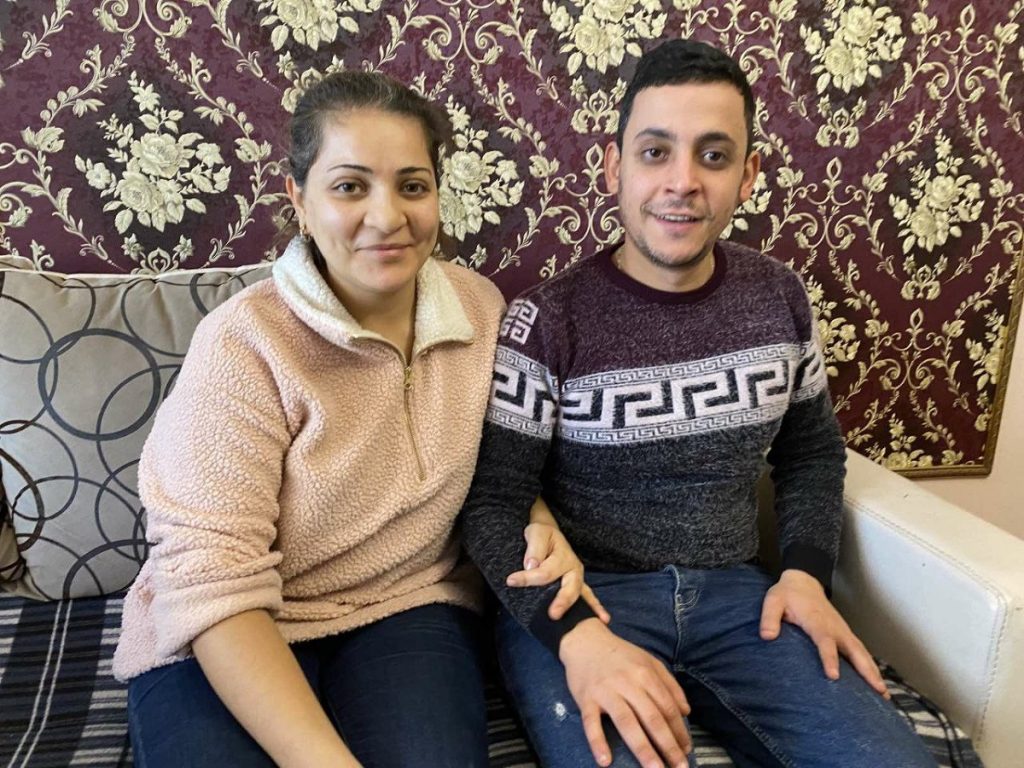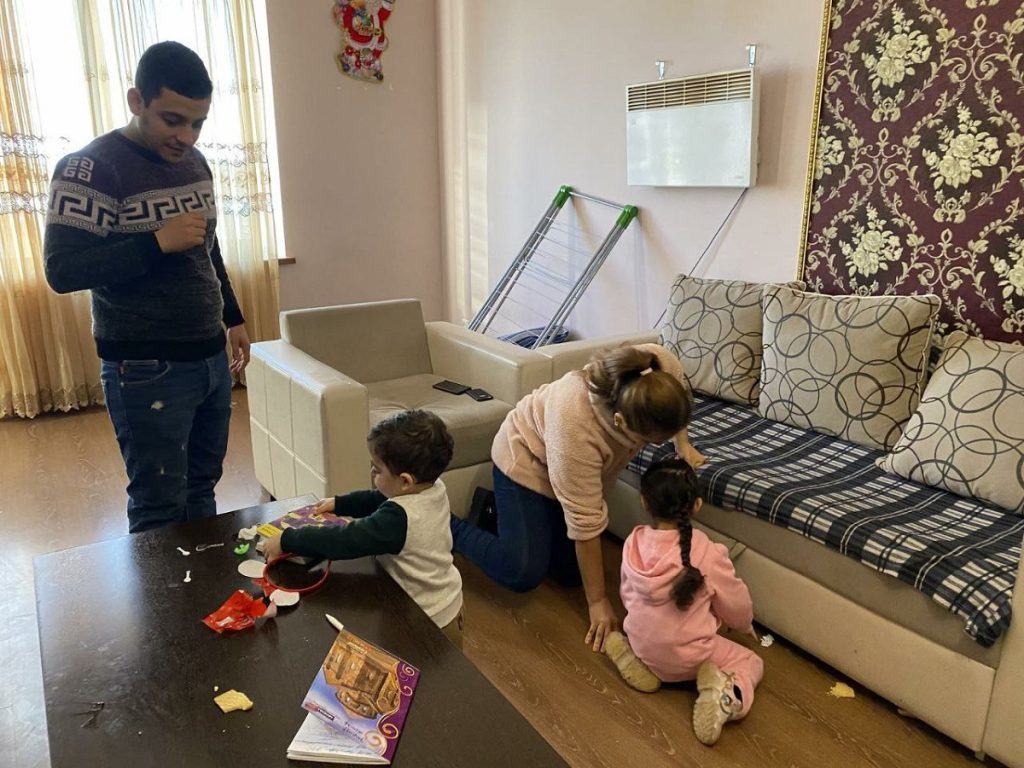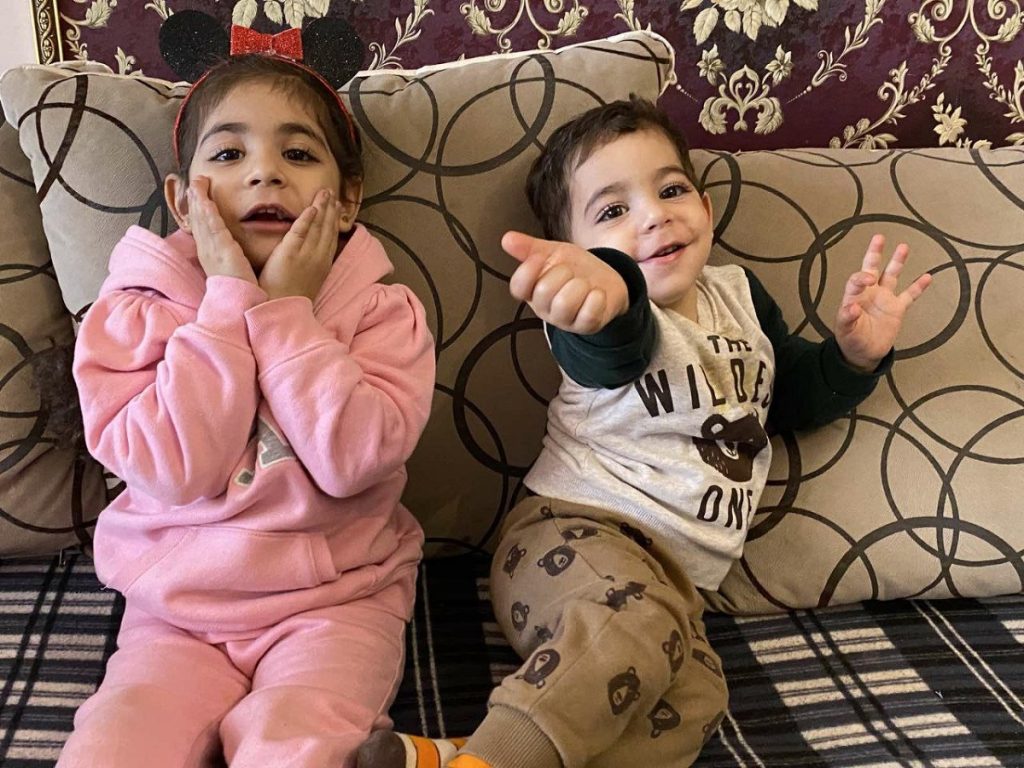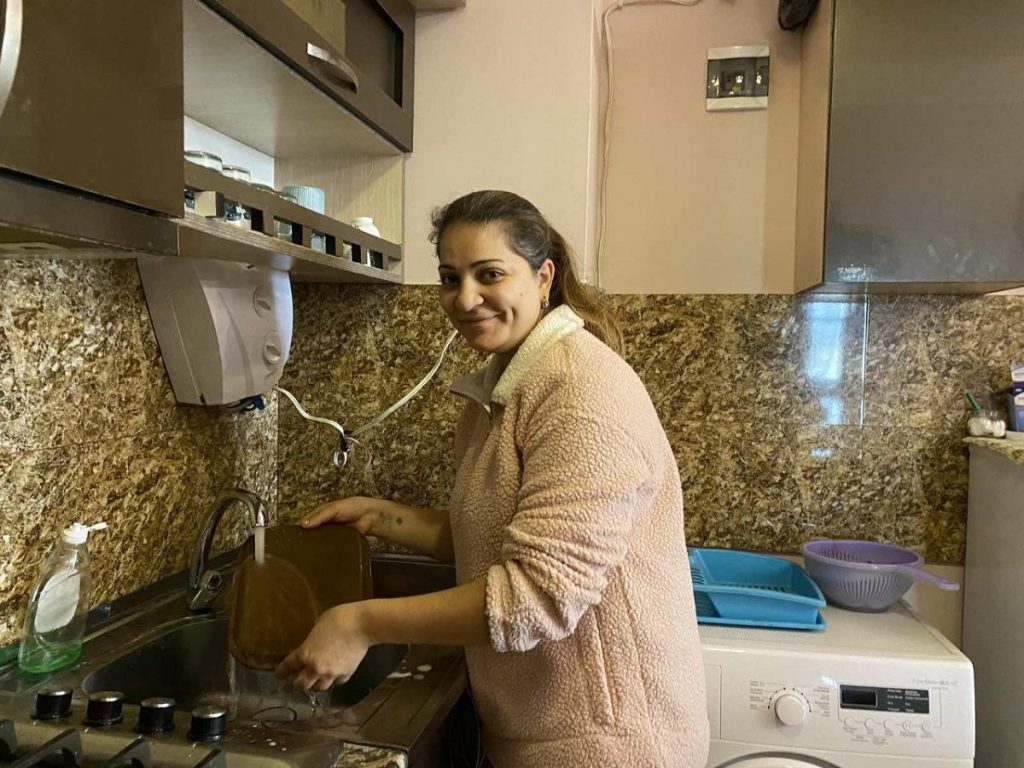Refugees in Armenia: New Year in an Arab family
Family of Arab refugees in Armenia
In Armenia, refugees are granted the same rights as citizens of the country. Restrictions apply only in terms of land ownership and voting rights. However, refugees, like locals, face similar problems, such as having difficulty finding a job. This is a story of a family from Egypt, who managed to obtain refugee status in Armenia.
- “While my country is in turmoil, I will live here” – asylum seekers in Armenia
- Dutch entrepreneurs come to Armenia to teach, stay to live
- Indians in Armenia – why they’re coming and what they’re doing here
Four years in Armenia
Peter Sedom and Viola Sand are celebrating New Year in Armenia for the fourth time. They try to explain in Armenian why they decided to stay in this country.
“In this country people, regardless of whether they know you or not, try to help, this often happens to us. I already have many friends among the locals, they call every day, ask how we are, invite me to their homes.
They call and say: “Peter, take the children and come to us for lunch”, 31-year-old Peter Sedom says with difficulty, but in Armenian. “Previously, I often had to use the Google translator, now I speak and understand the language better. And I am very pleased with the attitude towards us.
I have friends in Yerevan, Echmiadzin, Yeghegnadzor, Ashtarak. I like to communicate with people. When a problem arises, I call them and they come. The ceiling in our bathroom was leaking – they repaired it, the window broke, they also helped fix it”, he says.

This Arab family moved to Armenia in 2019 from the Egyptian city of Alexandria. They left the country because they were Christians.
“It’s hard to be a Christian and live in Egypt. I was afraid for my wife and daughter, and we decided to leave our homeland. I was advised to move to Armenia, where 95% of the population is Christian. I didn’t even know there was such a country. My son was born here, Gevorg is already 1.5 years old, my daughter Perpetua speaks Armenian better than we do, she goes to kindergarten and communicates with Armenian children”, says Peter.
According to the social worker of the Mission Armenia charitable organization Margarita Gardashian, she began working with this family since the time they asked for asylum and began to live in a special shelter of the Migration Service.
“After receiving refugee status, they moved to the integration rooms of the shelter. Before the coronavirus pandemic, Peter worked for Tashir Pizza, then he found a Lebanese Armenian who owned an Arabic cuisine restaurant in Echmiadzin. He started working there and then moved to live there. They lived in the house of the people they worked for. Then, because of Covid, this restaurant was closed”, says the social worker.
Peter’s wife, 29-year-old Viola, shows the traveling passports they received in 2020. With them, refugees can go to any country other than the one they came from and the same documents are used to get a job. But this is the biggest problem for refugees – finding a job.
“I want to receive a salary every month”
“It used to be easier to find a job, now it’s much more difficult. There was a time when I worked in a greenhouse, and received 100,000-150,000 drams a month [$ 210-310]. Now I work at a car wash, change the oil of cars, but I do not work every day. On the day they call me in, they pay 5,000 drams [approximately $ 10]. I work 17 or 16 days a month, the salary is 80,000-85,000 [$ 167-177].
Yesterday I paid 28,000 [$ 58] for electricity, gas and water, I add 20,000 [$ 40] to pay rent for an apartment, buy food – and that’s it, the money runs out”, says Peter.

Now the family is included in the Partial Housing Rent Compensation program of the Migration Service and receives 60,000 drams ($ 125) as assistance to pay for housing. This amount is provided to refugees for 9 months.
“They are also part of the family allowance system and receive 25,000 drams a month [$ 52]. All this money goes to pay for the apartment, Peter adds 20,000 more from his salary. The monthly payment for Perpetui’s kindergarten dropped from 10,000 [$ 20] to 2,000 [$ 4], as the family entered the list for the provision of benefits, that is, families with low income.
Mission Armenia included them in the winter assistance program, and now they receive a one-time allowance of 80,000 drams [$167] for utilities and warm clothes. And yet, of course, this is not enough”, says Margarita Gardashian.
In the apartment where Peter’s family lives, there is no Christmas tree, only a picture of Santa Claus hangs on the wall.
“Now is New Year’s, January 6th is Christmas, I want to buy toys for the children, but there’s not enough money, I’m nervous. I don’t have enough money, and I don’t know what to do. But there is a great desire for this year to be more successful, especially in terms of work. I want to have a job, to receive a salary every month. It is not a problem for me, I can work up to 15 hours. I want to stay and live in Armenia. God help me”, says Peter.

According to Margarita Gardashian, Peter’s family has successfully integrated into the Armenian environment, and in some cases it may no longer accompany Peter:
“He already speaks the language well, I only direct them what to do, where to go, Peter does the rest himself, starting, for example, goes to his daughter’s kindergarten, visits medical institutions. They wanted to live in Echmiadzin, they said that people there treat them warmer”.
“It doesn’t matter that I am not Armenian”
The family from Egypt was not scared by either the coronavirus pandemic or the 2020 Karabakh war.
“During the war, many of my friends left to fight, I also wanted to go, do something useful, but they didn’t let me. I am ready even now, it does no matter that I am not Armenian, I live here, in this country, this means that all this concerns me too”, says Peter.
Viola has difficulty speaking Armenian, but tries to participate in the conversation:
“I’m mostly at home, I really miss my parents, despite the fact that we communicate every day. I would really like Peter to find a good job this year, and we would live quieter”.

Peter and Viola dream of opening a small Arab restaurant in Echmiadzin, because they have experience in this business.
“If I had a little money, I would buy an oven, a gas stove, a car and open a small outlet, offering visitors Arabic food – zatar, lamajo, pizza. And Viola will help me earn money. She has skillful hands, makes candles, accessories, bags. We would work and live in our favorite city”, says Peter.


















